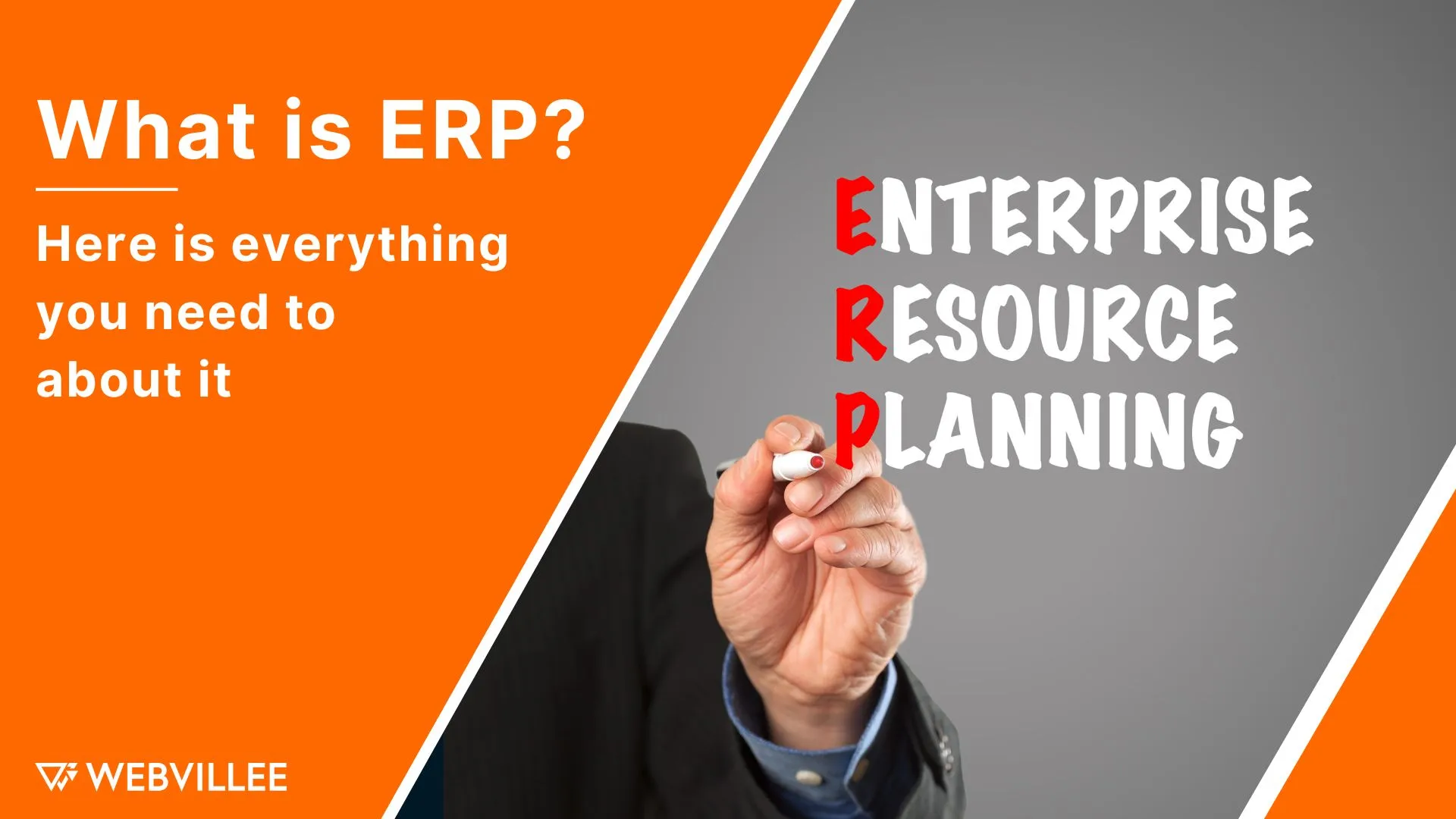Enterprise Resource Planning (ERP) is a crucial tool in today’s business environment. It’s a software system that helps organizations manage and integrate various parts of their business processes, such as finance, procurement, supply chain, human resources, and other operational functions. ERP systems provide a centralized framework for information sharing and operational efficiency, enhancing decision-making and productivity.
In this article, we will explore the concept of ERP, what it stands for, the features of ERP software, and how it benefits organizations of different sizes. Additionally, we’ll address frequently asked questions related to ERP systems.
What Does ERP Stand For?
ERP stands for Enterprise Resource Planning. It refers to integrated software applications designed to manage a company’s core business functions. By bringing together various departments, such as finance, inventory management, human resources, and customer relationship management (CRM), ERP systems provide a comprehensive solution for organizational planning and resource allocation.
What is ERP Software?
ERP software is a business management platform designed to automate and streamline company processes, create efficient workflows, and provide real-time visibility across an organization. This software integrates various functions into one complete system, enabling data sharing and communication across departments.
Instead of each department having its own disconnected system, ERP allows for seamless collaboration, helping different teams work with the same data and ensure consistent operations.
Key Features of ERP Systems
A robust ERP system comes with several key features designed to improve a company’s overall productivity:
- Integration: The most critical feature of ERP is its ability to integrate various business functions across departments. Whether it’s finance, sales, or inventory, an ERP system consolidates these into a single platform.
- Automation: ERP automates repetitive tasks such as payroll, invoicing, and order processing, reducing the risk of errors and saving time.
- Data Analytics and Reporting: With real-time data access, ERP systems offer insightful reports and dashboards, allowing businesses to make informed decisions based on accurate information.
- Customization: Modern ERP solutions are highly customizable to suit the specific needs of a company. Whether a business is in manufacturing, retail, healthcare, or any other sector, ERP systems can be adapted to fit its workflow.
- Scalability: As businesses grow, so do their operational demands. ERP systems are scalable, allowing organizations to add new modules or users as needed.
Types of ERP Systems
There are several types of ERP systems, and the right one depends on the organization’s size, industry, and specific requirements. Here are the most common types:
- On-Premise ERP: This system is hosted on the company’s own servers and requires an in-house IT team for maintenance and updates. It provides complete control over the system but can be more costly to implement.
- Cloud-Based ERP: Hosted on the vendor’s servers and accessed through the internet, cloud ERP systems have become increasingly popular for their affordability and flexibility. Small and medium-sized businesses often prefer this option as it requires no on-premise hardware.
- Hybrid ERP: A combination of both on-premise and cloud-based systems, hybrid ERP allows companies to have more control while also benefiting from the flexibility of cloud systems.
Benefits of ERP Systems
Implementing an ERP system offers several advantages to businesses, including:
- Increased Efficiency: By automating manual tasks and integrating business processes, ERP systems help reduce redundancies, saving time and effort.
- Improved Collaboration: With a centralized system, different departments can easily share data and collaborate on projects, improving overall teamwork.
- Real-Time Data Access: ERP systems provide businesses with up-to-date information, allowing for quicker, data-driven decisions.
- Cost Savings: Automation and improved efficiency translate to reduced operating costs. Businesses can allocate resources more effectively and eliminate unnecessary expenses.
- Enhanced Customer Service: With a clear view of customer data and history, companies can improve customer service by responding faster to inquiries and better meeting customer needs.
Challenges of Implementing ERP
While ERP systems offer many benefits, they can also come with challenges:
- High Initial Costs: The implementation of ERP software, especially on-premise systems, can be expensive due to the need for hardware, software licenses, and IT staff.
- Time-Consuming Implementation: Deploying an ERP system can take time, often requiring several months before it is fully operational.
- Resistance to Change: Employees may resist adopting a new system, particularly if they are accustomed to legacy systems. Proper training is essential to ensure a smooth transition.
- Customization Complexity: While ERP systems are customizable, tailoring them to fit specific business needs can sometimes add to implementation complexity.
How to Choose the Right ERP System?
When selecting an ERP system, businesses should consider the following:
- Business Needs: Assess your business requirements and choose an ERP that aligns with your industry and operational goals.
- Budget: Determine the total cost of ownership, including upfront costs, maintenance, and potential upgrades.
- Scalability: Choose a system that can grow with your business.
- Vendor Reputation: Consider the reputation and support offered by the ERP vendor. A reliable vendor will provide ongoing support and updates.
- Ease of Use: Ensure that the ERP system is user-friendly and that staff can be trained to use it without extensive technical expertise.
The Future of ERP Systems
ERP systems continue to evolve as new technologies emerge. Here are some trends shaping the future of ERP:
- Artificial Intelligence (AI) and Machine Learning: AI is increasingly integrated into ERP systems to enable predictive analytics and automate more complex tasks, such as demand forecasting and customer behavior analysis.
- Mobile ERP: With mobile apps, employees can access the ERP system from anywhere, enhancing flexibility and real-time decision-making.
- Cloud and Edge Computing: Cloud ERP systems are becoming more dominant, offering improved scalability and lower infrastructure costs. Edge computing, which processes data closer to where it is generated, may also enhance ERP performance in the future.
- Internet of Things (IoT): IoT devices, such as sensors and wearables, are being incorporated into ERP systems to collect real-time data from machines and equipment, improving supply chain and production processes.
Conclusion
ERP systems are essential tools for businesses looking to streamline their operations, enhance collaboration, and make data-driven decisions. While implementation can be complex and costly, the long-term benefits of increased efficiency, reduced costs, and improved customer service make it a worthwhile investment for most organizations.
Ready to enhance your business processes with Webvillee? Our expert services ensure that your systems work together flawlessly, streamlining operations and boosting productivity. Contact us today to discover how we can provide digital transformation to fit your unique needs and drive your business forward. Don’t miss out on the opportunity to optimize your integration and achieve seamless business success!
Frequently Asked Questions (FAQs)
1. What industries use ERP systems?
ERP systems are used across a wide range of industries, including manufacturing, healthcare, retail, construction, and finance. Any business that requires streamlined processes, data integration, and centralized management can benefit from ERP software.
2. Is ERP only for large businesses?
No, ERP systems are available for businesses of all sizes. While traditionally used by large enterprises, cloud-based ERP solutions have made ERP more accessible and affordable for small and medium-sized businesses.
3. How long does it take to implement an ERP system?
Implementation time varies depending on the size of the organization and the complexity of its operations. For small businesses, it can take a few months, whereas, for larger organizations, it could take up to a year or more.
4. Can ERP systems be integrated with other software?
Yes, ERP systems are designed to integrate with other business software such as CRM systems, e-commerce platforms, and supply chain management tools.
5. What are the most popular ERP software solutions?
Some of the leading ERP solutions include SAP, Oracle NetSuite, Microsoft Dynamics, and Infor. Each offers unique features and customization options depending on the business’s specific needs.
6. How much does an ERP system cost?
The cost of an ERP system can vary greatly depending on the vendor, deployment method (cloud or on-premise), and the size of the business. Initial implementation may range from a few thousand dollars for small businesses to several million for large enterprises.

